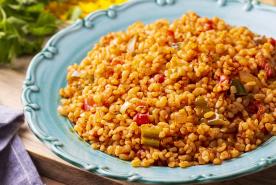Diet and nutrition Diet and meal planning Vitamins, nutrients, minerals, and supplements Plant-based diet
October 17, 2019
Yes, you can eat a plant-based protein diet if you have chronic kidney disease (CKD). It might even help your condition, say the authors of a new study published in the Journal of Renal Nutrition.
“It’s been shown that patients with CKD who obtain food from plant sources may actually demonstrate improvement in several of the complications of CKD like hypertension, metabolic acidosis, and hyperphosphatemia,” said lead author Dr. Shivam Joshi, clinical assistant professor at the NYU Langone School of Medicine and attending physician and nephrologist at NYC Health + Hospital/Bellevue.
“We were inspired to write this paper after reading in the renal literature outdated information from the 1970s,” Dr. Joshi said. “We want the general public to reconsider their stance on plant-based proteins in CKD and know that plant-proteins, when consumed in a varied diet, are a great source of amino acids for patients. These foods are rich in healthy substances, like fiber, antioxidants, phytonutrients, vitamins, and minerals that contribute to improved overall health.”
Dr. Joshi and his colleagues on the paper favor plant-predominant diets and want to clear up the persistent concerns of the past, he said. “The renal community has had no shortage of reasons to avoid plant-based foods in the past,” Dr. Joshi said. “However, over the years, we’ve seen these concerns fall by the wayside in response to an ever-expanding body of literatures documenting their safety and benefit for patients with CKD.”
“Other disciplines of the health care field have used plant-based diets to their benefit in treating heart disease, diabetes, and obesity,” he said. “Food can be seen as being complementary to pharmacologic therapies for patients with CKD. Instead of running away from these foods, and perhaps incurring harm by doing so, we should be embracing these foods to our collective benefit.”
If you have CKD, talk to your nephrologist about plant-based protein diets and schedule an appointment with a renal dietitian, Dr. Joshi said. You can also go here to find out more.
Want to dive into a plant-protein rich diet? Go here to find “must-have” foods like legumes and beans, grains, nuts and even spices. You can also learn about different diet plans, like the DASH diet or the Mediterranean diet, that are high in plant-based foods. Go here to learn more.
The Journal of Renal Nutrition is devoted exclusively to renal nutrition science and renal dietetics. Its content is appropriate for nutritionists, physicians and researchers working in nephrology.


















